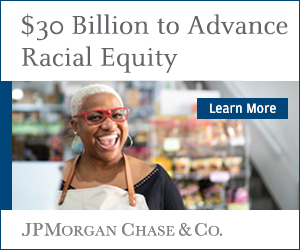Finances FYI Presented by JPMorgan Chase
Making investments with your savings is a great way to meet your financial goals. With a well-rounded approach and a little luck, you can put your money to work for you. Unfortunately, many investors put potential returns ahead of all other factors.
Keeping money safe should be the top priority for all investors. Investment fraud is a genuine concern, and far too many people have fallen victim to scams. Luckily, there are ways to help protect your savings and investments from fraud. Here are some of the best ways to make sure your money is in a safe place.
Lots of Research
The best way to ensure your investments are trustworthy is to do your research. In the internet age, you can determine the legitimacy of the opportunity with some simple searches. If you’re interested in buying the stock of a specific company, you should be able to find their financials and detailed information. The same is true for brokerages and financial advisors – be sure that whoever you’re dealing with is licensed and has a reputable background. There are many wolves in sheep’s clothing in the financial world, and it’s up to you to stay protected.
State laws vary, but many of them require investment vehicles to be licensed. Research the laws in your state and make sure the product is operating legally wherever necessary. Many scam investments won’t risk a state audit and won’t register where required.
Avoid Unsolicited or High-Pressure Offers
Two of the most prominent indications that an investment opportunity might not be on the up and up are high-pressure sales tactics and unsolicited offers. Professional financial advisors don’t use these strategies, and you should be aware if you come across them.
If a salesperson is requesting money immediately and doesn’t want to give you a chance to research, you should immediately reject the opportunity. Don’t fall for stories that sound too good to be true or the high-pressure pitch that you’re going to miss out on profits. There’s typically a good reason these people don’t want you to research the investment, and it’s never beneficial for the investor.
There Are No Guarantees
If you ever hear about an investment opportunity that “can’t miss” or promotes “guaranteed returns,” you should immediately be skeptical. Investments of all types come with some level of risk, and returns are never a certainty.
Even tools like bonds that are considered a guarantee come with some risk level and won’t always turn a profit. Compare the investment with similar products in the sector to get an idea of what’s possible. Remember, the potential of significant returns typically involves a high amount of risk.
Communicate Concerns
Frequent communication with your salesperson or advisor should help alleviate concerns. Don’t shy away from asking questions so you can fully understand the investment before allocating funds. Ask for documents like a prospectus or offering circular, as most legitimate opportunities will have plenty of documentation.
If you still have concerns or just want a second opinion, you’re within your rights to bring in a third party. Consulting with another professional about the opportunity should help solidify the choice. A third party will be able to provide information on the product you’re interested in, the salesperson or advisor you’re working with, and whether it’s a wise decision for your finances.
Doing thorough research before investing is the easiest way to protect yourself and your money. Most scam opportunities will appear unsolicited and pressure you to get in the game immediately. Ignore the promises of fast returns and take a microscope to investment. Getting in the habit will keep your money protected and will help you reach your financial goals.
Finances FYI is presented by JPMorgan Chase. JPMorgan Chase is making a $30 billion commitment over the next five years to address some of the largest drivers of the racial wealth divide.
























